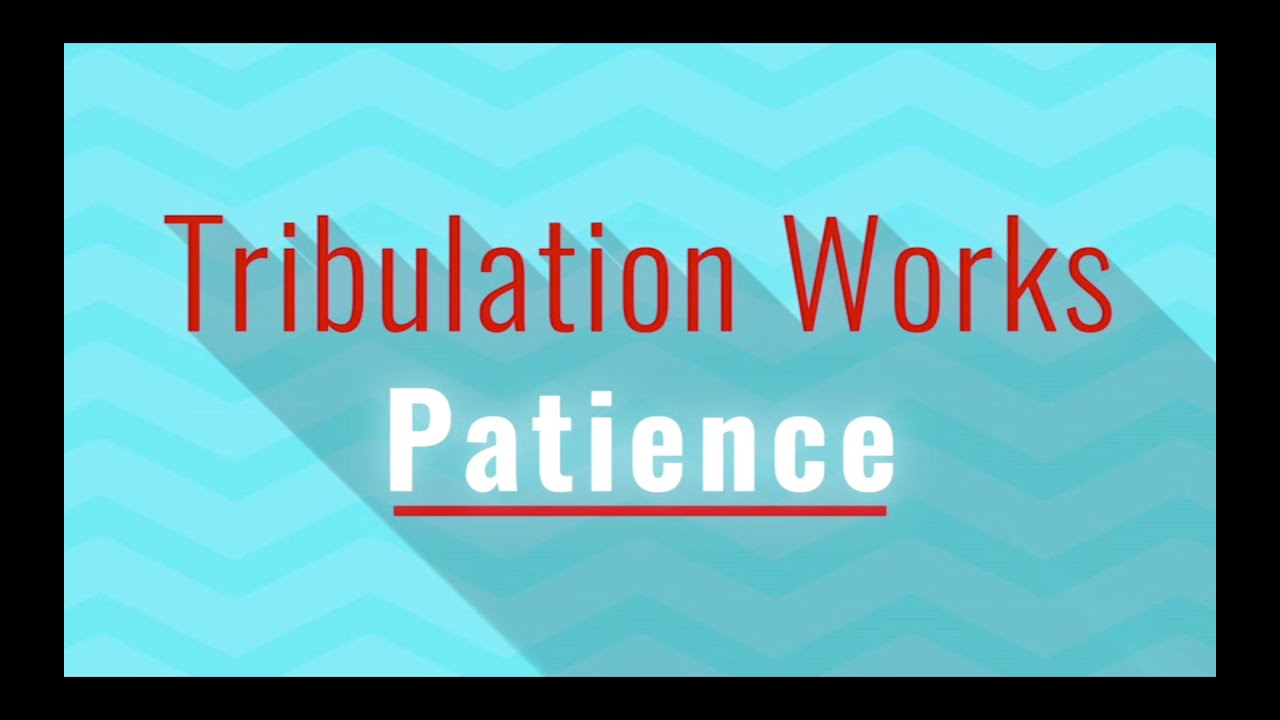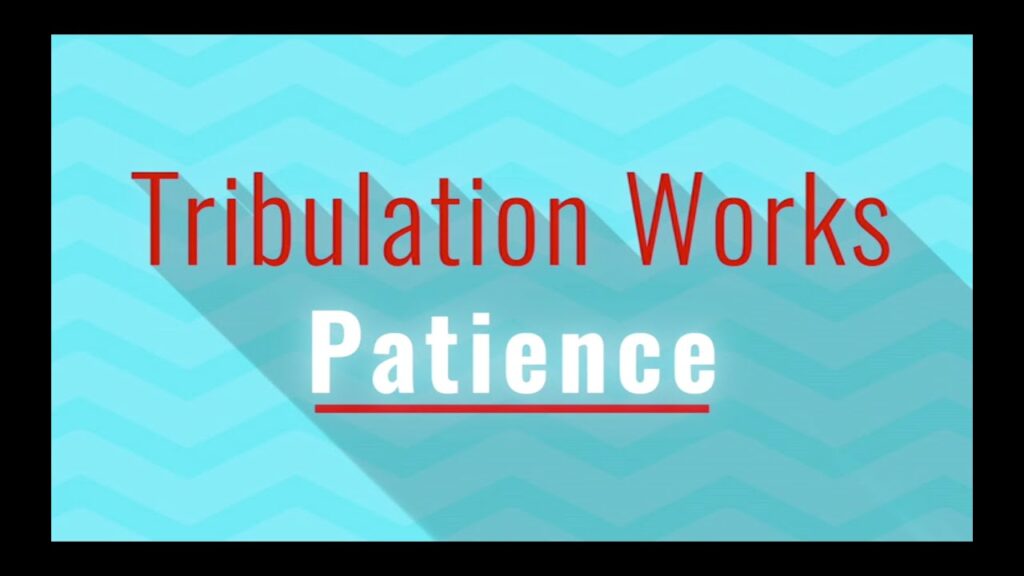
PATIENCE in TRIBULATION

Is patience in tribulation a concept we wrestle with in everyday living? Do many people think about the concept? Practice it or even wonder about it? What does patience in tribulation look like? These are questions this article will examine. It will also define what each word means based on present and past experiences and match them with today’s practical landscape.
What is Patience?
Merriam-Webster says patience is “the ability to wait or continue doing something despite difficulties or to suffer without complaining or becoming annoyed.” Cambridge Dictionary gives the same meaning. Webster’s New World Dictionary “implies the bearing of suffering, provocation, delay, tediousness, etc., with calmness and self-control.” Finally, Vocabulary.com defines patience as “a person’s ability to wait something out or endure something tedious, without getting riled up.”
The key ingredients in all definitions are calmness and postponement: not getting upset and doing “crazy” things when you don’t get what you want at the time you want it. How does that “gel” with what you hear and see today?
What is Tribulation?

Merriam-Webster defines tribulation as “distress or suffering resulting from oppression or persecution; also: a trying experience.” The Free Dictionary states tribulation is “great affliction, trial or distress; suffering. Thesaurus refers to tribulation as ” a state of pain or anguish that tests one’s resiliency and character.” The commonality of all three definitions is pain, suffering inflicted on someone, usually by another person. That pain and suffering has an emotional, mental and physical impact on a person’s life.
What Does Patience in Tribulation Look Like?
It looks like the picture above. . . slavery in America. It mirrors stripping a person of self-worth, self-respect, inflicting physical pain, mental humiliation and degradation. Ask yourself Do I have the mental stamina to endure such tribulation? The ancestry of millions of Americans shares such a birthright. Most were overtly patient during such tribulations, but mentally, emotionally and morally impatient. Such distresses are seen in their posterity today. Patience in tribulation involves adapting a “state of mind” outside of the human realm of thought. How did my ancestry cope with such human indignities?
Religion Gave Slaves Hope and Slave Masters a Rope

Today, what do you do when you are going through trials and tribulations of which there doesn’t seem to be any answers? If you believe in a semblance of spirituality, you cling to it for endurance, hope and faith to get you through them.
Well. . . the slave did the same. He believed that he would one day “cross the river of Jordan” and the master’s whip would be no more. His master, however, used that faith and hope to convince the slave that his plight was God’s plan. . . and no one could change it. After all, God made you stupid, inferior and unable to take care of yourself. Be grateful I am here to give you what you have…even if you get beaten in the process. Pathetically, many people in America still embrace such nonsense.
A View of Patience in Tribulation
For many, patience in tribulation means recognizing the human suffering one experiences is not an act of goodness and righteousness, but because of the ever presence of God’s law, love and goodwill must remain constant in the face of such adversity. This state of thought enables one to endure the suffering without remorse, hate and destruction. It is not a sense of resignation to human indignities, rather a faith that God will correct the situation at the appropriate time. A typical response is, “God’s time may not be my time.”

Christians practiced patience in tribulation. . . not because of faith in human law and righteousness, but because of faith in the ever presence of God’s Law. This ever presence of God enabled them to wait with love and patience until human experiences were elevated to the divine. Jesus was the greatest example of this. He maintained peace, joy and love in the face of mankind’s most obscene afflictions. How does this compare with world view today?
Tribulation and Patience Today

“Pursuing Godliness in a Godless World” is a challenge for many so-called spiritually minded people today. Patience has been replaced with “I want it yesterday” and tribulation is a burden no one wishes to bear. Therefore, human responses to trials and tribulation result in violence, wars and other tragedies. Godliness is placed on “the back burner” and ungodliness takes over. How does one express godliness in a godless world? Spirituality is the key! It allows the individual to mentally replace human situations and experiences with divine understanding. That understanding removes the stresses and indignities and gives one a sense of peace, harmony and love. This is the godliness that Jesus so amply executed and left as a legacy for us. Is it easy? No!
Tribulation Works Patience
The first image in this article says, “Tribulation Works Patience.” I contemplated what that means. It means tribulations determine character, judgment and moral values. Character drives actions taken in “trying” situations. I recall not getting a job desperately desired. Upon discovering the person who received it, did not cause me to act negatively toward him. In fact, there was a time he needed assistance, and I supplied it. Losing the election should not have caused an insurrection in America. Disagreements should not allow a person to grab a gun and shoot someone. Unhappiness with one’s life is not an excuse to conduct a “mass shooting” and urging violence is not the pathway to sound leadership. Where have we gone astray in America? Money, power and control have become our gods.
Patience is a virtue that should cause us to find a solution to adversity with values such as truth, goodness, mercy, justice and integrity. Using such patience during trials, will enable us to respond with decisions for the betterment of all mankind. How do you measure up? Think about it!
